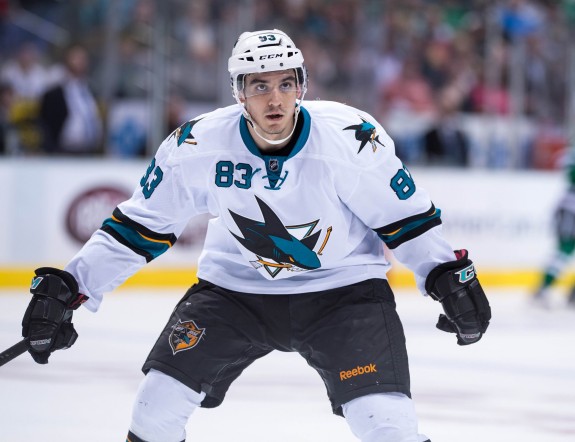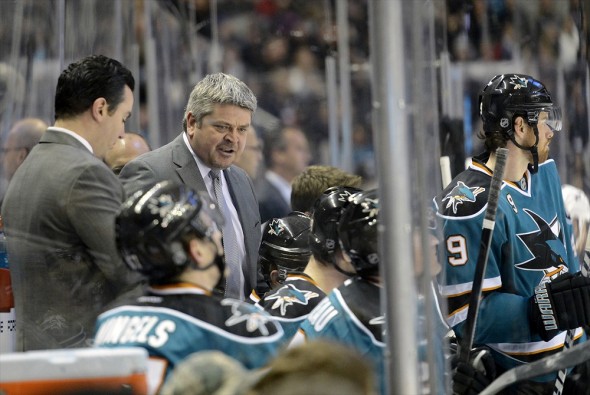On the NHL’s first night of the season, the San Jose Sharks took center stage. They were a main story all offseason as their leadership was questioned and trades rumors were swirling. But, they put it all behind them on that first game. They shutout the LA Kings and played a complete team game. Yet, this was the only time that San Jose would reveal its true Sharks identity. Since Game 1, the Sharks have not played a complete game. And a four game losing streak has proven that.
Sharks Identity Last Season
Finishing with 111 points, the Sharks were among the league’s elite. They became an explosive offensive threat, outshooting their opponents by seven shots per game. Their goalies, Antti Niemi and Alex Stalock, were stellar for most of the season as well. The Sharks only allowed 2.35 goals per game in 2013-14. Their biggest improvement? In 5-on-5 situations, the Sharks raised their goals for/against ratio from 1.00 to 1.17. All in all, the Sharks identity was that of a complete, two-way team.

Troubled Waters in San Jose
After the win in Los Angeles, the Sharks returned home and turned in another shutout by a different goalie. While on the surface, 2-0-0 while outscoring opponents 7-0, the Sharks looked good, there was trouble brewing in San Jose. The defense was not playing clean hockey. Passes were going to open ice, breakouts were sluggish, and the goalies were forced to bail out their men.
The offense continued to score goals and make Team Teal competitive. Nail biter wins against the Caps and a poor third period against the Devils gave the Sharks a 4-0-1 start. But when the goals dried up, so did the wins. And then, teams started to realize, the Sharks were vulnerable and had lost sight of who they were as a team. Saturday’s loss to the lowly Buffalo Sabres illustrated the Sharks identity crisis.
Curious Coaching Calls
After moving Brent Burns back to the blue line, the Sharks seemed to have a solid lineup. While their depth on offense took a hit, the defensive pairs received a boost after losing Brad Stuart and Dan Boyle in the offseason. And however poor those two were, they were still holding down the D-pairs. This turned the forward lines on their heads a little. Joe Pavelski moved to the top line and turned the third line into a much less experienced group. And the fourth line? Well, let’s just forget about them for right now.

Burns, while prolific offensively so far, is struggling to find his game on defense. As THW’s Andrew Bensch mentioned, the hairy big man is better suited at forward. The defensive pairs have not been consistent either. Marc-Edouard Vlasic and Justin Braun, easily the Sharks two best defenders have bounced around. At times, they have been paired together. While this creates a shut-down pair, it also makes the remaining pairs terrible.
The forward lines are an even worse mess. Here’s what they were on opening night:
- Pavelski-Thornton-Hertl
- Marleau-Couture-Nieto
- McGinn-Tierney-Wingels
- Brown-Desjardins-Burish
After Saturday, we have seen lines with Hertl down on the third, Wingels up top, Nieto down a line, Tierney up, and many more changes down on the fourth line. We are nine games into the season and the Sharks are still figuring out problems that are meant to be solved in the preseason.
This constant juggling prevents the lines from building anything together. The smooth passing of elite teams like the Blackhawks is formed through chemistry. While the Sharks are talented, they are not meshing well. Teams cannot win on talent alone. The Sharks fold in the second and third periods. They come out fast, like a talented team does. But once the opposing coach gets a good look, they gameplan and outwork the Sharks. The Sharks identity so far is to start fast then collapse late. They are a good team that expects to get by on skill alone and if they stay that way, they can call this season a bust right now.